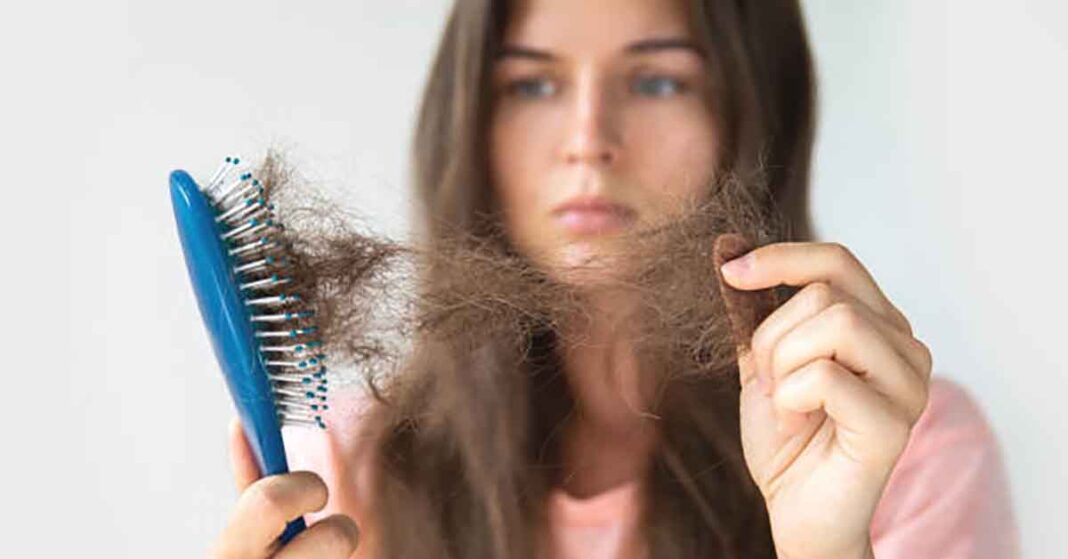According to Dr Natasha A Mesinkovska — vice chair of clinical research in the department of dermatology at the University of California, Irvine — allergies to foods and environmental allergies can increase hair loss in children and adults.
Presenting at the South Beach Symposium, she said:
The thing that I want you to take home today is the role of allergies in immune conditions. What we really should be doing for both adults and kids is asking them what they are allergic to, because if you treat the allergy, you can actually prevent people’s hair from falling out.
According to a 2017 study published in the journal Pediatric Dermatology, atopy, including food allergies, is the most prevalent comorbidity in alopecia areata — a common autoimmune condition that causes hair loss — among adults and children.
Said Mesinkovska:
I had a lot of alopecia areata kids complaining of belly aches, so I ran food panels on them and 9 out of 10 tested positive for a sesame allergy. I thought to myself, how did this happen and why are all these kids testing positive?
One reason may be food manufacturing practices.
Sesame became the ninth top allergen requiring special handling and labeling on January 1, 2023 when the Food Allergy Safety, Treatment, Education and Research (FASTER) Act took effect.
Despite years of notice, many manufacturers found the new regulation too burdensome. As we were first to report, many opted to add small amounts of sesame to their products to circumvent the new allergen cross-contact requirements.
As a result, patients with sesame allergy were exposed to the allergen in products they thought were previously safe.
Added Mesinkovska:
I will tell you that I have had two kids that were unable to go on Janus kinase inhibitors, so we had them stop eating sesame and we stopped their alopecia areata. You could say, well that’s only two for two, but for them, it was life-changing.
She went on to discuss frontal fibrosing alopecia (FFA), a type of scarring hair loss that primarily affects the frontal hairline:
A study in the UK found that people that have this condition actually tended to use year-round sunscreens. Dr Sinclair’s group in Australia also showed a patient who stopped using sunscreen and her hair came back.
That doctor now advises FFA patients to avoid applying sunscreen to the hairline and wear wide-brimmed hats or avoid the sun instead.
“I definitely stay away from chemical sunscreens and just don’t let my patients apply it, definitely not on that area,” Mesinkovska said.
Mesinkovska recommends dermatologists consider allergies when treating patients. Serum IgE testing for patients with alopecia areata may reveal the root cause of their hair loss, as it provides high specificity and a good positive predictive value.
If you are concerned about hair loss, be sure to discuss your food allergies or known allergies to specific chemicals or substances with your doctor.
- ‘Maybe we should listen’: Allergies from sesame to sunscreen may aggravate hair loss — Healio
- Shedding Light on Alopecia Areata in Pediatrics: A Retrospective Analysis of Comorbidities in Children in the National Alopecia Areata Registry — Pediatric Dermatology
- Frontal Fibrosing Alopecia (FFA) — Sinclair Dermatology





